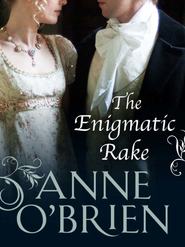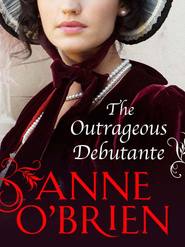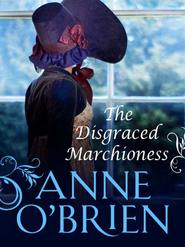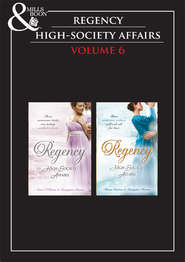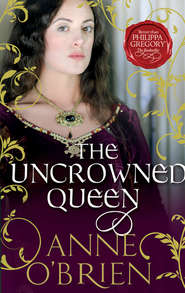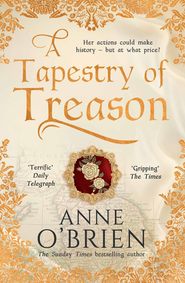По всем вопросам обращайтесь на: info@litportal.ru
(©) 2003-2025.
✖
Marriage Under Siege
Настройки чтения
Размер шрифта
Высота строк
Поля
‘Of course, Sir Joshua. All has been prepared in the old solar. Robert here will show you the way, my lord, if you have forgot. I hope you will accept my condolences on this sad occasion. All at Brampton Percy are relieved that you could come here so rapidly, given the unexpectedness of Lord Edward’s death and the dangers that threaten God-fearing folk when they set foot outside their homes.’
‘Thank you, Foxton. It is good to be here.’ Mansell’s words were politely bland, but he refused to meet Josh’s eye, deciding that it would not be politic to inform his new Steward of his true sentiments towards his inheritance.
‘I doubt they will be so delighted with your presence when they realise that your views on the present state of affairs in general and His Majesty in particular do not match so well with those of Lord Edward.’ Josh’s words were quietly spoken, for Francis’s ears only. ‘Or those of the rest of this county.’ His brows rose in anticipation. ‘It will be interesting to see the reaction when your neighbours discover that they have acquired a Parliamentarian fox in their comfortable Royalist hen-coop.’
‘Very true.’ Mansell grimaced, but refused to be drawn further. ‘I think that perhaps I will not mention that tonight—it is likely to be an inflammatory subject, as you say, and I have not the energy for anything more than food and a bed. Tomorrow, we shall see.’ He turned back to Foxton, who was preparing to carry off the garments in the direction of the kitchens. ‘Lord Edward’s burial, Master Foxton. Have arrangements been made for it to take place?’
‘Indeed, my lord. The Reverend Gower—the recent incumbent in the church here—has it all in hand. It is to be conducted here tomorrow, Wednesday, at St Barnabas’s, if that is to your convenience.’
‘I do not see any reason why not.’
They turned to follow in the wake of Robert—a soberly dressed servant whose lack of co-ordination and interested glances towards the newcomers betrayed his youth—heading towards the staircase at the far end of the Hall. Their boots sounded hollowly on the oaken boards of the vast room.
‘There is no need for you to feel that you should stay for that event.’ Mansell turned towards his friend, returning to the previous conversation, understanding Sir Joshua’s desire to reassure himself of the safety of his family in Ludlow. ‘And on first acquaintance, I doubt that I can offer you much in the way of comfort here.’ He raised his head to take in the hammer beams above with their festoons of cobwebs and shivered a little as the draughts permeated his damp clothes. There was clearly no form of heat in the room, no warming and welcoming fire, in spite of the vast cavern of a fireplace built into one wall. ‘I would think that nothing has been spent on this place, and certainly no major improvements made since it was built—when?—over three hundred years ago.’
‘Your first impression is most astute, my lord.’
The voice, calm and well modulated and distinctly feminine, took Mansell by surprise. He came to a rapid halt and looked round, keen eyes searching the deep shadows. He could not see the owner.
‘Most of the castle dates back over three hundred and fifty years, my Lord Mansell,’ the observation continued from his right. ‘And I can vouch for the fact that there has been little, if any, attempt to either improve, refurbish or extend it—to the detriment of all comfort and pleasure.’
He swung round. And saw a figure, certainly the owner of the voice, partly concealed in the shadows by the carved screen that ran along the north side of the Great Hall. Her clothes were dark; a glimpse of the pale skin of hands and face being the only sign that initially caught his attention. Presuming that it was merely a servant girl, if an unusually outspoken one, engaged in conducting her own household tasks, he would have continued his progress with merely an inclination of the head in her direction and a lift of his brows, but a discreet cough from Foxton behind him drew Mansell’s attention.
‘My lord …’
The lady approached with graceful steps to stand beside Foxton, her eyes never leaving Mansell’s face. As she emerged from the shadows he glimpsed a movement beside her which soon transformed itself into a large hound. It remained close to the lady’s skirts, as if it sensed her need for protection, its pale eyes fixed on Mansell, its lips lifted into the faintest of snarls, exposing long teeth. Mansell assessed its elegant limbs, its rough grey pelt, its broad head tapering to a narrow muzzle and allowed his lips to curl into a slight smile. So here was the wolfhound itself! The dog growled low in its throat, only quietening when a slender hand was placed on its head in warning.
Thus Mansell turned his attention to the lady, but with cursory interest. A relative? A female dependant? Clearly not a servant, not even the housekeeper, as now indicated by the style and quality of her raiment.
She stood quietly before him, waiting for Foxton, or Mansell, to take the initiative. She was dressed completely in black from head to foot with no decoration or redeeming features, no jewellery, no lace, but her gown was of the finest silk and the fashioning spoke of London. Her brown hair was neatly and severely confined at the nape of her neck, without curls or ringlets to soften the impression. An oval face with clear hazel eyes, well-marked brows and an unsmiling mouth. Her skin was pale, with delicate smudges beneath her eyes, the severe colour of her dress robbing her of even a reflected tint that might have been flattering. She looked, he thought, on the verge of total exhaustion. She was young, but yet not a girl. Not a beauty, but with a composed serenity that had its own attraction. Serene, that is, until he noted her hands, which were clasped before her, but not loosely. Her fingers, slender and elegant, were white with tension. And he could see a pulse beating rapidly in her throat above the high neckline of her gown. He returned his gaze to her face, his brows raised in polite enquiry. The lady simply stood and waited. He had the impression—why, he was unsure—that she had been standing in the shadows of the room since his arrival, watching and listening, making her own judgement. A finger of disquiet touched his spine.
Mansell had no idea who she was. And yet, there was perhaps something familiar about her … He cast a glance at Foxton to help him out of this uncomfortable situation. Before the steward could speak, the lady curtsied and spoke. Her voice, as before, was calm and soft, quite confident, confirming that she was no housekeeper.
‘We have been expecting you, Lord Mansell. You must be weary after your journey.’ There was not even the faintest smile of welcome to warm the conventional words. ‘And your travelling companion. I have arranged for food and wine in the solar, if that will please you. It is the warmest room.’
‘Thank you. Foxton has so directed us. Mistress …?’ He saw the quick glance pass between Foxton and the lady.
‘I see that Lord Edward did not see fit to inform you, my lord.’ She met his enquiring gaze without shyness, her composure still intact. It ruffled him that he was the only one to feel in any way compromised by this situation.
‘Inform me? I am not sure …’ Impatience simmered. His brows snapped together in a heavy frown, usually guaranteed to provoke an instant response. Josh saw it and awaited the outcome with interest.
‘My lord.’ Foxton came to his rescue. ‘If I might be permitted to introduce you.’ He bowed towards the still figure at his side, his face enigmatic, but his eyes sharp. ‘I have the honour to introduce to you Honoria, Lady Mansell. The wife—the recent bride—of Lord Edward. This gentleman, my lady, is Sir Francis Brampton, a distant cousin of Lord Edward and, as heir to the title, now Lord Mansell. And Sir Joshua Hopton, who travels with him.’
The lady sank into a deep curtsy as the two gentlemen bowed. Sir Francis took the opportunity to attempt to marshal the jumble of facts and impressions that assailed him. This was not what he expected when he had received the news of Edward’s sudden death. This could probably provide him with an unnecessary complication. He forced his mind to focus on the most startling of the developments.
‘Edward’s wife? I was not aware.’ He fixed the lady with a stark stare as if the fault were hers. And then frowned as he took in her neat hair and clear features. ‘And yet … I believe that we have met before, my lady.’
‘We have, my lord, but I did not expect you to remember. It was more than two years ago—in London, before the outbreak of hostilities.’
‘Of course.’ He failed to hide the surprise in his voice. ‘You are Mistress Ingram, the Laxton heiress, if I am not mistaken. You were at Court in the autumn of 1640. At Whitehall. I was there with Katherine …’
‘Yes. I am—that is to say, I was Honoria Ingram.’
‘Indeed, we were introduced at one of the Queen’s masques. One of Inigo Jones’s extravaganzas.’ There was the merest hint of distaste in his voice.
‘I was there with Sir Robert Denham, my guardian, and his family.’
‘I know Sir Robert, of course. But my cousin’s wife! I had no idea …’
‘How should you, my lord?’ She watched his reactions with some detached interest, but without emotion, without involvement.
‘Lord Edward had always given the impression—to my father—that he had chosen not to marry and never would. We were given to believe that he did not hold women and the state of matrimony in very high regard.’
‘As for that, my lord, I am not in a position to give an opinion.’
The lady before him grew even paler, if that were possible. Lord Francis groaned inwardly at his clumsy choice of words and his thoughtless lack of tact. There was no excuse for it. Sir Joshua’s inelegant attempts to cover a laugh with a fit of coughing irritated him further and elicited a fierce glance in his direction before Mansell turned back to his cousin’s widow in a hopeless attempt to mend a few fences.
‘Forgive me, my lady. That was unwarranted. I did not intend any discourtesy. My manners appear to have gone begging after four days of travel in adverse conditions. Will you accept my apology?’
The lady gave her head a little shake. ‘It is not necessary, my lord. Your assessment of the situation is most percipient and quite correct. I believe that it was certainly not Lord Edward’s intent to marry until very recently. The prospect of a fortune in land and coin, however, can make even the most obstinate or the most jaundiced of men change his mind.’ The pause was barely discernible. ‘And Lord Edward was, without doubt, both.’
‘How long ago—since you were married?’ Mansell could not mistake the bitterness in her tone, however much she might try to conceal it, as she exposed the reason for the marriage with such terrible clarity.
For the first time the lady hesitated a little before she replied, perhaps disinclined to reveal more. There was the ghost of some emotion in her clear gaze, a mere shadow, but it was too fleeting for him to interpret. Her face remained impassive and her voice, when she finally answered, was without inflection as if explaining a matter of no account.
‘Four weeks ago, my lord, I was a bride. Now, I am a widow. I believe that it is Mr Wellings’s intention—Lord Edward’s lawyer from Ludlow, you understand—to discuss your inheritance and my jointure with you on Thursday, the day after the funeral.’ She turned away towards the staircase, effectively masking any further reaction to his questions and hindering any attempt on Mansell’s part to pry further. ‘Now, my lord, perhaps you and Sir Joshua would care to leave this extremely draughty hall for a place of a little more comfort. My solar is at least warm and relatively draught free. I am afraid that you will not find Brampton Percy, as you so astutely commented, very conducive to either comfort or convenience.’
Chapter Two
Wednesday, the day of Lord Edward Mansell’s funeral, saw a continuation of steady rain and high winds. It seemed to the new Lord Mansell most apposite to be standing beside a coffin in a gloomy churchyard in such dire conditions. It matched his mood exactly. The trees, some such as the towering horse chestnuts with the merest hint of spring growth, were lashed without sympathy as the rain drummed heavily on the surface of Lord Edward’s coffin and on the small crowd of mourners who had turned out to mark his passing. There was a collective sigh of relief as Lord Edward’s earthly remains were finally carried into the church where they would be laid to rest in the family vault, allowing everyone to get in out of the rain.
Few of the local families had chosen to attend the passing of the old lord. The war was beginning to stretch the traditional ties of local loyalties and Lord Edward had never been a popular member of the county elite. Too irascible, too penny-pinching, reluctant to extend even the basic needs of hospitality to his neighbours. And, more often than not, downright unpleasant. Therefore, given the state of the roads and the possibility of enemy action, even on a small local scale, many had elected to stay at home.
There was no sign of Viscount Scudamore of Holme Lacy, although it was true to say, even by those who disliked his youthful flippancy and lack of respect for convention, that he would have the furthest to travel. But also absent was any representative of Fitzwilliam Coningsby of Hampton Court near Leominster. Or Henry Lingen. But some had made the effort. Henry Vaughan was present, as well as Sir Richard Hopton. And Mansell was conscious of Sir William Croft’s brooding presence at his shoulder throughout the burial service. There was family connection here, through history and marriage, but the new lord did not relish the forthcoming conversation with his powerful relative. Sir William, major landowner in the county and owner of Croft Castle, had a reputation as a staunch Royalist and had, without doubt, more than a little influence in county politics.
The family retainers from Brampton Percy were present in force, of course, and some tenants from the village cottages and surrounding farms—but they had braved the weather more to get their first sighting of the new Lord Mansell, he mused cynically, than any desire to pay their last respects to Lord Edward.
The Reverend Stanley Gower droned on through the service, his nasal intonation increased by a heavy cold, as damp and chill rose from the stone floor and walls and the congregation coughed and shuffled.
‘For as much as it hath pleased Almighty God of his great mercy to take unto himself the soul of our dear brother Edward here departed …’
Mansell sighed silently, doubting that any of those present regarded Lord Edward Mansell in the light of a dear brother. He kept his gaze fixed on the scarred boards of the old box pew before him, effectively masking his own thoughts. Sir Joshua sat at his side, gallantly lending his support—as he had cheerfully explained when he postponed his journey to Ludlow, the prospect of enjoying the explosion of temperament when Croft was made privy to his new neighbour’s political leanings was too good an opportunity to miss. Mansell had expressed himself forcefully and succinctly, threatening to banish Josh from the proceedings and send him on his way if he dared say one word out of place but, indeed, he appreciated the solid presence beside him in the grim atmosphere.
Alone in the old lord’s pew, the worn outline of the Brampton coat of arms engraved on the door, sat Lady Mansell. It had been her own choice to sit alone. Mansell had every intention of lending his support to the widow, but she had chosen otherwise. She had absented herself from the company until the last moment, deliberately isolating herself in her lord’s pew. He turned his head slightly to assess her state of mind, intrigued by this unlooked-for influence on his inheritance.
Honoria Brampton remained unaware of his regard. She sat perfectly still, gloved hands folded in her lap, the hood of her cloak pushed back from her neat coils of hair. No shuffling, no fidgeting, she looked straight ahead towards the distant altar. Lord Mansell could detect no trace of tears, no obvious distress on her calm face, her eyes somewhat expressionless and unfocused. He frowned a little, but had to admit that after their single encounter he would have expected no less.
On the previous night she had arranged for the provision of food and warmth and then simply withdrawn with instructions to the servants to ensure their comfort. She had made no effort to entertain, to explain the death of her husband, to enquire after their journey. All was competently and capably ordered, but Lady Mansell was personally uninvolved. And yet not, it would seem, from overwhelming grief. Mansell shrugged his shoulders in discomfort within his sodden cloak and shuffled his booted feet on the cold flags. It was, of course, difficult to judge on such slight acquaintance and it would be unfair of him to presume.






